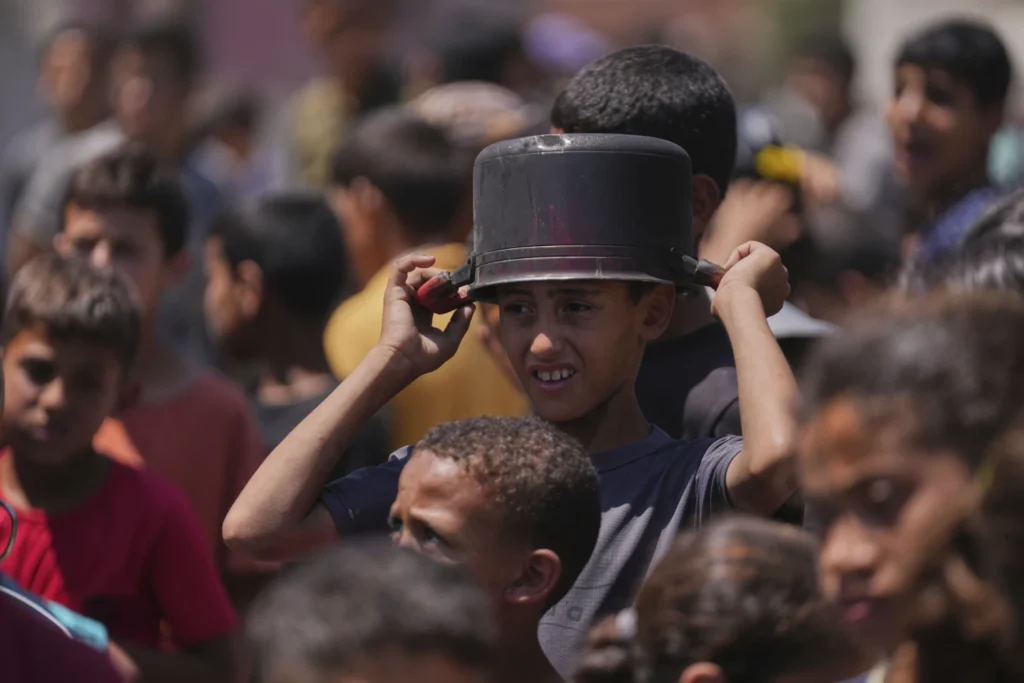WASHINGTON — U.S. Special Envoy to the Middle East Steve Witkoff on Saturday dismissed a newly submitted Hamas ceasefire proposal as “totally unacceptable,” urging the militant group to instead agree to a U.S.-backed framework aimed at securing a 60-day truce in Gaza.

Witkoff, appointed by President Donald Trump in November, issued a firm rebuke on X (formerly Twitter), shortly after Hamas announced its willingness to release 10 living hostages and the bodies of 18 others in exchange for the release of Palestinian prisoners.
“I received the Hamas response to the United States’ proposal. It is totally unacceptable and only takes us backward,” Witkoff wrote. “Hamas should accept the framework proposal we put forward as the basis for proximity talks, which we can begin immediately this coming week.” He added that Hamas’ compliance is the “only way” to finalize a 60-day ceasefire deal.
The sharp response underscores the growing frustration among U.S. officials as efforts to halt the fighting in Gaza stall, even as the region suffers a mounting humanitarian toll.
In its statement, Hamas reaffirmed its core demands, calling for a permanent ceasefire, complete Israeli withdrawal from Gaza, and a sustained influx of humanitarian aid into the besieged enclave.
A proposal outline shared earlier by Hamas with NBC News included a phased approach: a 60-day pause in fighting, the release of 33 hostages, and a prisoner exchange at a 30-to-1 ratio. It also called for daily aid convoys of 600 trucks and the return of displaced Palestinians to all areas of Gaza.
Under Hamas’ plan, the temporary truce would eventually evolve into a permanent cessation of hostilities upon full implementation of its terms. NBC News could not independently verify the contents of the proposal.
While the White House indicated that Israel has already approved the U.S. proposal, Israeli Prime Minister Benjamin Netanyahu’s office did not publicly confirm its position on Hamas’ response. Instead, Netanyahu accused Hamas on Saturday of “continuing to reject” the U.S.-backed truce plan, according to Reuters.
In contrast, senior Hamas official Basem Naim disputed that claim, telling Reuters that Hamas had not rejected the proposal. Instead, he accused Israel of reneging on previously agreed-upon terms and criticized Witkoff’s posture as “unfair” and “completely biased” in favor of Israel.
The conflicting accounts have deepened skepticism over the viability of ongoing negotiations, which resumed earlier this month in Istanbul for the first time in over three years but yielded only a limited prisoner exchange and vague promises to stay in contact.
The diplomatic impasse comes amid worsening conditions in Gaza, where the Palestinian Health Ministry, controlled by Hamas, reported 60 deaths and 284 injuries in the past 24 hours alone. Since the war began on October 7, 2023, more than 54,000 people—including thousands of children—have reportedly been killed in the territory.
Israel launched its offensive following a Hamas-led terrorist attack that killed approximately 1,200 people and resulted in the capture of around 250 hostages, marking the most violent escalation in the conflict in decades.
After an 11-week blockade, Israel recently reopened crossings to allow humanitarian aid into Gaza, following international pressure. However, humanitarian groups have raised strong objections to the implementation of aid delivery.
As part of the renewed humanitarian push, the Gaza Humanitarian Foundation (GHF)—a newly launched initiative backed by the U.S. and Israel—has started distributing food aid. The White House claims the effort is aimed at streamlining assistance and ensuring equitable access.
President Trump on Wednesday acknowledged the dire conditions in Gaza, calling the situation “nasty” and recalling the October 7 attack as “the worst that I think I’ve ever seen.”
Despite the urgent need for aid, humanitarian organizations have voiced concerns that GHF’s approach could undermine long-standing aid frameworks and compromise the independence of relief operations. They also condemned Netanyahu’s plan to establish aid distribution points primarily in southern Gaza, warning that it could lead to forced displacement of Palestinians.
In a Friday update, GHF said it would expand operations to northern Gaza, announcing plans to build more distribution sites in the coming weeks. The foundation claimed to have provided over 2.1 million meals in just four days.
While Russia and Turkey have expressed support for further talks in Istanbul, the path to a ceasefire remains uncertain. Hamas has made clear it will not accept a deal without a path to a permanent end to hostilities, while the U.S. and Israel are pressing for a temporary truce as a stepping stone.
For now, Witkoff’s rejection of the latest Hamas proposal and the lack of a unified position among the key players suggest that a truce remains out of reach—even as the humanitarian crisis in Gaza continues to spiral.



